Program
View/download PDF version of program
CCLF-2018-Program
Events take place in the Concourse Lobby and adjacent rooms (elevators down to C-Level).
*** sessions may be recorded and/or webcast ***
10:00 – 10:30 Registration and Welcome Breakfast
10:30 – 11:00 Opening Remarks
Alberta Gatti, Director, CILC
Chase Robinson, President, The Graduate Center
Paul Arcario, Provost and Senior Vice President for Academic Affairs, LaGuardia Community College
11:00 – 11:50 Articulation, Retention, and Student Success
Moderator: Alexander Funk, CILC
“The View from the Back Page: Languages in North Carolina’s New Comprehensive Articulation Agreement”
Chris Moore De Ville, Pitt Community College
“The Impact of Tutor-Led Modern Language Labs on the Engagement of Community College Students in Modern Language Courses”
Lorna Feldman, LaGuardia Community College
Julio Rosario, LaGuardia Community College
“Return/Graduation Success of Students Taking the Heritage Language Course”
Tomonori Nagano, LaGuardia Community College
12:00 – 12:45 Invited Presentation
Results from the 2016 MLA Language Enrollment Census: The View from Community Colleges
Dennis Looney, Director of Programs and ADFL, Modern Language Association
Natalia Lusin, Associate Director of Research, Modern Language Association
This talk will present findings from the 2016 MLA Language Enrollment Census with a focus on the applicability of specific data to colleagues in community colleges. Topics include: highlights of the survey and enrollment trends, how faculty members can use the data to advocate for the study of language(s) on their home campus, and the distribution of enrollments by institutional or program type in postsecondary education.
12:45 – 2:00 Lunch provided by CILC
2:00 – 2:35 Applying Open Educational Resources
Moderator: Alberta Gatti, CILC
“Expanding Practical Approaches to Teaching with Open Educational Resources (OER) in the Language Classroom”
Laurie Lomask, Borough of Manhattan Community College
“OER or Z? The case of Montgomery College”
Sharon Fechter, Montgomery College
2:40 – 3:30 Pedagogical Applications of Technology
Moderator: Eric Ketcham, CILC
“Learning Languages in the Digital Age: Best Practices and Alternatives for Developing Oral Skills and Fostering Student to Student Interactions in Online Instruction”
Silvia Roig, Borough of Manhattan Community College
“Promoting Intercultural Community Competence, Critical-Thinking and Problem-Solving Skills through Virtual Collaborative Learning Partner Projects with College English-Language Learners in China”
Dali Tan, Northern Virginia Community College
“Telecollaboration in the Heritage Language Class: A Tool for Dialectic and Critical Analyses of Latinx Identity”
Aránzazu Borrachero, Queensborough Community College
Coffee Break
3:45 – 4:35 Translation and Interpretation
Moderator: Aída Martínez-Gómez, John Jay College of Criminal Justice
“Teaching Translation for Professional Purposes at the Community College”
Ana María Hernández, LaGuardia Community College
María Cornelio, Hunter College
“Court-Interpreter Internship Pilot Program for Multilingual Students: Challenges and Accomplishments”
Habiba Boumlik, LaGuardia Community College
Ann Ryan, New York Courts
“Successes of the Medical, Legal and Community Interpreting Program at Tulsa Community College”
Rita Weil, Ricarti Group
Tina Peña, Tulsa Community College
4:40 – 5:30 Keynote Address
Speaking Up for Language Education: It’s Everybody’s Business
Marty Abbott, Executive Director, ACTFL
What is the role of language educators in the current climate of disruption to the notion of acceptance of those who speak other languages and come from other cultures? How can we equip ourselves not just to survive, but to thrive, during these times? Several national initiatives have provided important tools that language professionals can use to spur students and our expanded communities to speak up, take action, and effect change in order to bridge America’s language gap.
5:30 Closing Remarks
Alberta Gatti
Reception to follow
With special thanks to:
Valeria Belmonti, Alexander Elinson, Aranzazu Borrachero, Tom Means, Olga Aksakalova, Luisanna Sardu, and Kyoko Toyama for developing and leading pre-conference workshops. Tomonori Nagano and Alex Funk for their commitment to CILC’s community college initiatives. Dennis Looney and the talented MLA team who have always been so generous with their time. Michael Rolland for stepping in every time we needed him, and the other CILC research assistants, Miriam Atkin, Tyler Peckenpaugh, and Katie Etingar for their generous dedication to many organizational aspects of the conference. And finally, Danielle Wetmore, the true motor behind all things forum, who always approached the many tasks involved with professionalism, a collaborative spirit, and a positive attitude.
Alberta Gatti, Director &
Eric Ketcham, Assistant Director, CILC
This project is partially funded by a Title VI grant from the US Department of Education and the Language Reading Program.

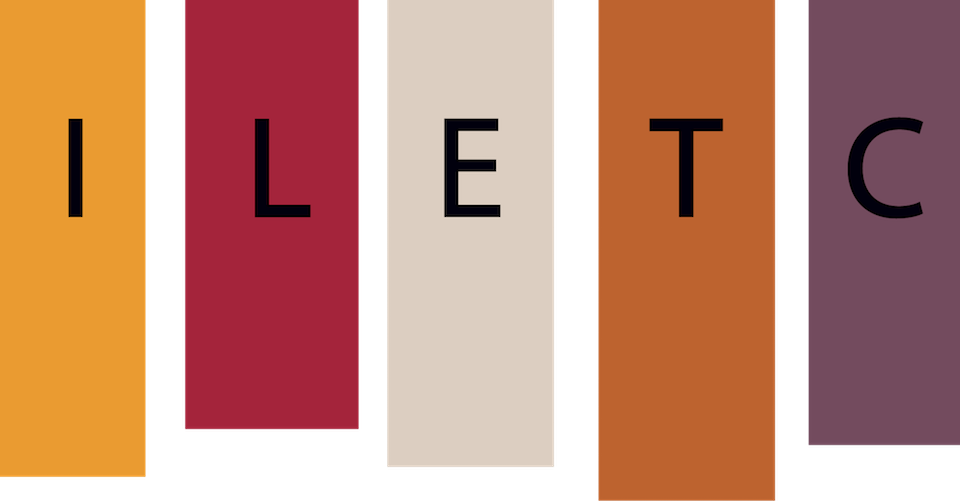
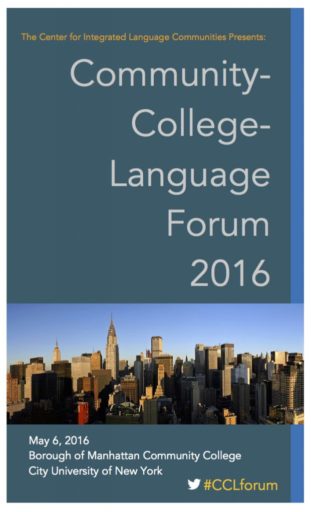
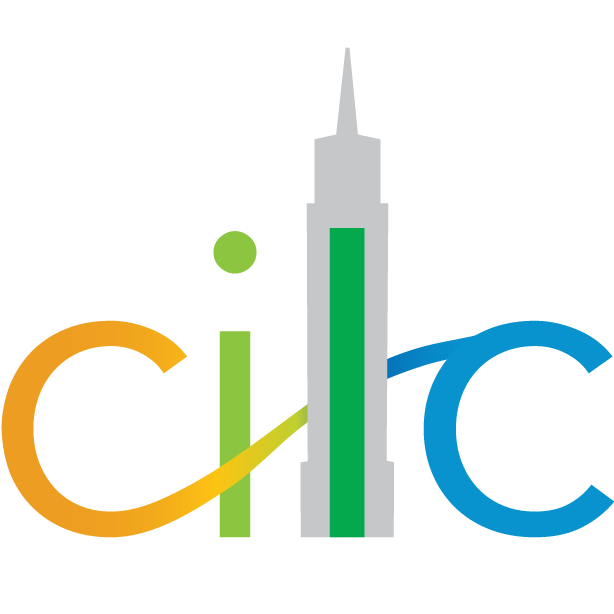

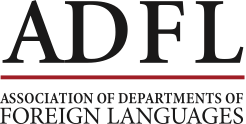
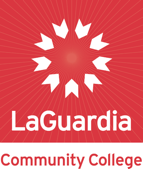
 Marty Abbott is currently the Executive Director for the American Council on the Teaching of Foreign Languages (ACTFL). Her career began in Fairfax County Public Schools (VA) where she was a language teacher, foreign language coordinator, and Director of High School Instruction. She has served on national committees to develop student standards, beginning teacher standards, and performance assessments in world languages. She was President of the American Council on the Teaching of Foreign Languages in 2003 and became its Executive Director in 2011. Under her leadership, ACTFL created the Center for Assessment, Research and Development and launched the public awareness campaign, Lead with Languages. She recently served as a commissioner for the American Academy of Arts and Sciences national report America’s Languages: Investing in Language Education in the 21st Century and in 2016 was appointed by President Obama to serve a four-year term on the National Security Education Board. She holds her B.A. degree in Spanish with a minor in Latin from the University of Mary Washington and a Master’s Degree in Spanish Linguistics from Georgetown University.
Marty Abbott is currently the Executive Director for the American Council on the Teaching of Foreign Languages (ACTFL). Her career began in Fairfax County Public Schools (VA) where she was a language teacher, foreign language coordinator, and Director of High School Instruction. She has served on national committees to develop student standards, beginning teacher standards, and performance assessments in world languages. She was President of the American Council on the Teaching of Foreign Languages in 2003 and became its Executive Director in 2011. Under her leadership, ACTFL created the Center for Assessment, Research and Development and launched the public awareness campaign, Lead with Languages. She recently served as a commissioner for the American Academy of Arts and Sciences national report America’s Languages: Investing in Language Education in the 21st Century and in 2016 was appointed by President Obama to serve a four-year term on the National Security Education Board. She holds her B.A. degree in Spanish with a minor in Latin from the University of Mary Washington and a Master’s Degree in Spanish Linguistics from Georgetown University.
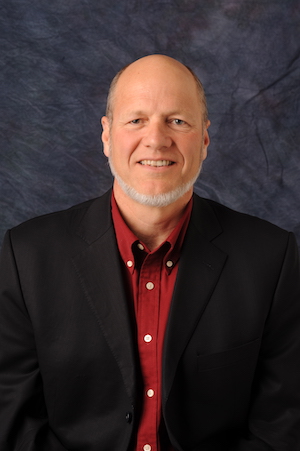 Since 2014, Dennis Looney (PhD, 1987, Comparative Literature, University of North Carolina at Chapel Hill) has served as director of the Office of Programs and director of the Association of Departments of Foreign Languages at the Modern Language Association of America. For the Office of Programs he oversees projects relating to the profession, such as departmental reviews, the ongoing examination of faculty rights and responsibilities, monitoring educational and curricular changes, and the development of statements of best practices. As director of ADFL, he oversees the Language Consultancy Service, the MLA Language Map, the language enrollment database, and other projects focused on languages other than English.
Since 2014, Dennis Looney (PhD, 1987, Comparative Literature, University of North Carolina at Chapel Hill) has served as director of the Office of Programs and director of the Association of Departments of Foreign Languages at the Modern Language Association of America. For the Office of Programs he oversees projects relating to the profession, such as departmental reviews, the ongoing examination of faculty rights and responsibilities, monitoring educational and curricular changes, and the development of statements of best practices. As director of ADFL, he oversees the Language Consultancy Service, the MLA Language Map, the language enrollment database, and other projects focused on languages other than English.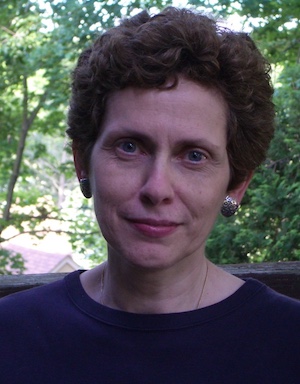 Natalia Lusin is Associate Director of Research at the Modern Language Association. She has worked at the MLA in a research capacity since 1992, and as Associate Director since 2012. She conducts data gathering and data analysis for studies on the modern language field, among them the MLA enrollment census, considered the standard measure of language interest in higher education in the US.
Natalia Lusin is Associate Director of Research at the Modern Language Association. She has worked at the MLA in a research capacity since 1992, and as Associate Director since 2012. She conducts data gathering and data analysis for studies on the modern language field, among them the MLA enrollment census, considered the standard measure of language interest in higher education in the US.
